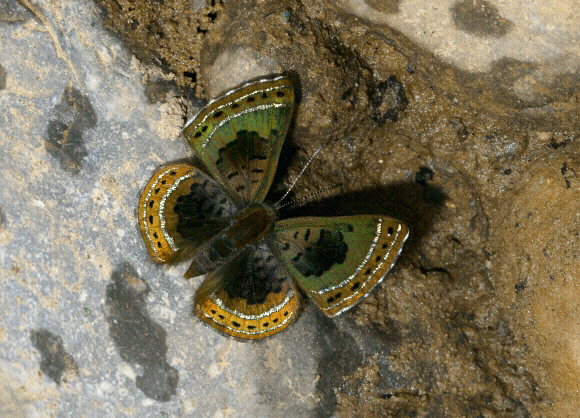 Chalodeta chaonitis Satipo, Peru – Adrian Hoskins
Chalodeta chaonitis Satipo, Peru – Adrian Hoskins
Introduction
The neotropical Riodinidae includes a group of genera – Chalodeta, Detritivora, Calephelis, Charis and Dachetola, which are characterised by having an orange submarginal band containing a series of black dots, and bordered either side by metallic silver lines. Chalodeta can be distinguished from the others by the venation and early stage morphology. The eyes of Chalodeta also differ in that they have tiny setae located between the ommatidia.
Chalodeta comprises of 8 known species found variously from Mexico to Bolivia. Telling them apart can be difficult, although chaonitis and theodora are quite distinctive.Chalodeta chaonitis is distributed from Venezuela to Peru.
Habitats
This species appears to be confined to primary rainforest east of the Andes, at altitudes between about 100-1000 metres. It inhabits the forest understorey and like others in this group of genera is commonly seen in light gaps in the forest, but can also be found in forest edge habitats and glades.
Lifecycle
The larvae feed on the flowers of Miconia longifolia ( Melastomataceae ).
Adult behaviour
Males habitually bask with the wings raised at an angle of about 45�, with the forewings held slightly concave and tilted forward. They can often be found imbibing mineralised moisture from sand or boulders along the banks of small streams.
